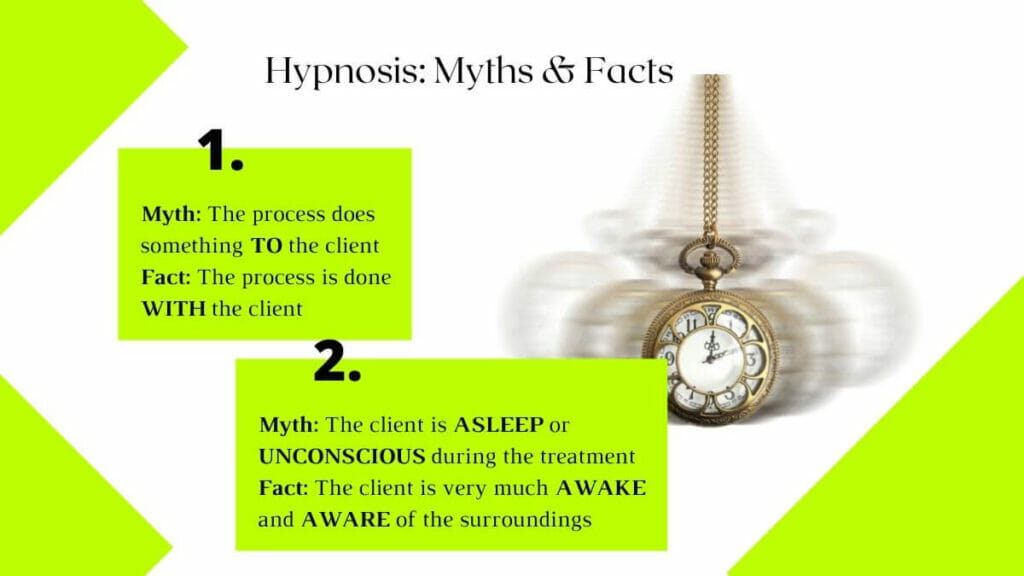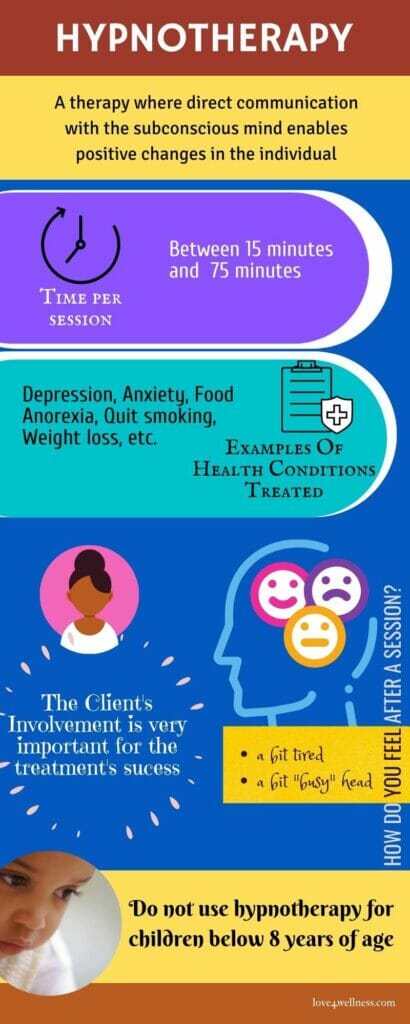The common perception of Hypnotherapy is mysterious, mystical, and dark. Despite the bad reputation, the therapy has stood its ground for thousands of years and is still relevant in this era of the internet. There is a nice other side forming as well, with many doctors and psychologists approving the therapeutic benefits hypnotherapy offers in treating various physical (such as weight loss and smoking), emotional (such as anxiety), and behavioural issues (such as substance abuse).
Would it be marvellous if you heard what Hypnotherapy is and how it works from a hypnotherapist herself?
Rebecca is a certified clinical hypnotist/hypnotherapist who answers some of the most frequent questions for you, our beloved readers. There are many myths surrounding the therapy, and Rebecca’s detailed explanations debunk most of them!
Rebecca’s answers:
1. What is Hypnotherapy?
In the simplest of terms, Hypnotherapy is a therapeutic intervention that allows beliefs to be changed from disbelief to belief through direct communication with the subconscious mind allowing us to make positive lifestyle changes.
2. Who is it for?
Almost anyone can have Hypnotherapy. Hypnotherapy is almost certain to help you if you have an imagination and want to make positive lifestyle changes.
3. How does hypnotherapy help?
Hypnotherapy can help people make changes to their thoughts, feelings and behaviours. Results are often quick, in many cases more rapidly than other forms of therapy.
4. What are some of the techniques a hypnotherapist use during a hypnotherapy session?
A hypnotherapist often has several techniques that they will use during a session, for example, using positive suggestions, reframing or regression. Clients use their imagination to visualise themselves making positive changes; each client is unique, and sessions are generally tailored to meet the client’s specific goals.
The therapist will work with the client to resolve the underlying issues or driving forces behind a particular behaviour, for example, a phobia, smoking or comfort eating. A good example of an emotion that causes negative behaviour is stress. Stress is often the reason why people smoke, drink too much alcohol, or comfort eat. Dealing with the things in life that are causing stress and thereby reducing that stress level will facilitate a change and reduce or even rid the need to engage in negative behaviours.
5. What can one expect during a hypnotherapy session?
Sessions are usually either face to face or online. Whichever way, the hypnotherapist should be welcoming and make you feel at ease. This is important because some clients are nervous about having Hypnotherapy and have preconceived ideas about what it is like. So, at the start of the session, time is spent answering any questions, building a rapport and discussing the client’s desired changes and goals.
You will comfortably sit in a chair in a room free from the distractions of children, pets and the outside world. The hypnotherapist will then begin the process of guiding the client into hypnosis called induction. Once the client is in a hypnotic state or trance, then the change work will begin.
The hypnotherapist uses a variety of techniques and suggestions to communicate with the subconscious to help the client make necessary changes to their thoughts, feelings, behaviour patterns and beliefs, which in turn encourages positive lifestyle changes. The client is very much part of the change process – Hypnotherapy is not something that is done to the client; it is done with the client.
The hypnotherapist will often talk to the client and ask questions throughout the session. This allows the therapist to respond to the client’s needs appropriately and check that the client is also making the necessary adjustments internally. Once the necessary work has been done, then the client is brought out of the trance and given time to reorientate themselves. Finally, the session may conclude with some additional supportive techniques for the client to use at home.

6. What happens in our mind and body while undergoing hypnosis?
Hypnosis is a pure state of focus in which the critical mind is ‘bypassed’ so direct communication with the subconscious mind can occur. It is very much an individual experience, and how people feel during hypnosis is unique to them.
Some people feel like they are drifting and floating, some feel heavy and relaxed, some feel like they are just sitting in a chair.
Throughout the session, you will remain aware of your surroundings, you will be listening to the sound of the hypnotherapist’s voice, and you are in control at all times.
Contrary to popular belief, you are not asleep or unconscious in hypnosis, and the hypnotherapist cannot make you do anything you don’t want to do. When in hypnosis, you will notice your breathing slows down, you often feel relaxed but alert, and you begin to experience the power of your imagination.
7. How long does a session last?
A session generally lasts between 15 minutes and 1 ½ hours – yes, that’s right! Change can occur in as little as 15 minutes. Sessions are either face to face if you are local to the therapist or online over zoom.
8. What would be the typical frequency of follow up sessions if required?
I like to follow up with a client by text a few days after the session to see how they are getting on. Follow up sessions are generally client led – the client knows best how they are feeling and if there is still more work to do. If you feel that a further session would be beneficial to give you a ‘top up’ or to deal with an additional issue, then there is no problem in booking a further session.
9. In how many sessions can we see a significant difference?
In most cases, we achieve results in just one session. However, there are no guarantees. And this, of course, depends on the client, their commitment to the therapy and the complexity of their issue. For instance, severe anxiety and weight loss tend to require several sessions. And, on the other hand, habits, phobias, fears, general stress and anxiety, issues with confidence and self-esteem are generally resolved in one session.
10. Are the results permanent, or will a patient/client require ongoing therapy?
In most cases, the results are permanent; you may need occasional top up’s. The client’s commitment is extremely important for Hypnotherapy to be effective and for the client to get the best from their session. Hypnotherapy won’t be as effective or even not work at all if you don’t want to change – for example, you are only giving up smoking to please your partner and deep down, you don’t really want to.
11. How do I prepare myself for a hypnotherapy session?
You will have already had a good chat with your hypnotherapist before the session to discuss how you think Hypnotherapy might help you and if it is the right therapy for you. First, your therapist will take your basic details and a brief history of your issues. Then, you will likely sign a consent form agreeing to the treatment, which also sets out any terms and conditions regarding payment.
In some cases, you may need to do some preparation for the session; for example, you might be asked to cut down on the number of cigarettes you have each day leading up to the stop smoking session, or you may be asked to keep a food diary prior to a weight-loss session.
12. Will there be any downtime after the session?
If you have a face to face session, then the hypnotherapist will make sure that you are fully awake, alert and safe to travel before allowing you to leave. You may feel emotional, tired or like your head is ‘busy’ for a short while after your session, but this is completely normal, and those feelings will pass.
13. Will there be any side effects?
For most people, Hypnotherapy is completely safe, although there are contraindications (see below). There are no significant or severe side effects to Hypnotherapy. However, following a session, you might experience feeling tired for a short while or feeling like your head is ‘busy’. As said, this is entirely normal and is just your subconscious mind continuing to process thoughts, memories, feelings etc., for a short time following your session.
14. Are there any contraindications? Is there a cross-section of people who must not try Hypnotherapy?

In cases where there is any doubt about your suitability for hypnosis, always seek the consent of your GP. Your safety is paramount, and if you have any concerns, it is always better to get medical advice first. There are contraindications to hypnosis, and there are conditions that make Hypnotherapy inadvisable.
- Contraindications to Hypnotherapy include conditions,
- schizophrenia
- pathological personalities
- alcohol or drug psychosis
- senility
- epilepsy with seizures and narcolepsy
- bi-polar
- clinically depressive illnesses
- people with suicidal tendencies
- Serious heart conditions, pregnancy may be contraindicated, so again, seek your GP’s consent first.
- Severe eating disorders such as anorexia nervosa can incorporate Hypnotherapy into treatment. However, this is usually done as part of a multi-agency/mental health team approach with hypnotherapists specifically experienced and trained in this field.
15. Can one attend Hypnotherapy while under other medications or other therapies?
In most cases, yes. However, I recommend that you discuss this with your GP just to make sure.
16. Is Hypnotherapy suitable for children?
Children make great hypnotic subjects. They have wonderful imaginations and are continually open to suggestions! However, I would say that Hypnotherapy is not suitable for young children under the age of 8.
17. Can you share experiences/patient stories (anonymous ones are fine to protect confidentiality and privacy) if possible?
The following are actual clients’ stories in their own words and given with their permission. The names have been changed to protect their identity.
Client story – Jane, aged 35. (depression/anxiety)
Before my initial discussion and appointment with Becky, I had no knowledge or experience of Hypnotherapy, how it works or the process. From the outset, it was immediately clear to me that Becky is confident and experienced in her field and is continually developing her practice.
Becky’s friendly and personable manner enabled me to relax and be open to hypnosis. She explained very clearly what the sessions were all about and what I could expect to achieve by opening up to the process. With this knowledge and understanding, I found it very easy to relax and get the most from my time with her. I had two sessions, and I have no hesitation in saying that the improvements I have seen in myself and my ability to stop taking medication safely, after a significant number of years, have come about as a direct result of my sessions with her. I would recommend hypnotherapy to anyone who has problems with depression or anxiety.
Client story – Claire aged 48 (weight loss/comfort eating)
I was a little concerned at first about having hypnosis. I wanted Hypnotherapy for weight loss but also some emotional issues that I had. Rebecca put me at ease and made me feel relaxed. I was very unsure of myself and had no self-confidence due to personal reasons. After a couple of sessions, I have managed to take back control of my life. With my new self-confidence, I have joined a local Slimming group and am successfully losing weight. Also, I am taking better care of myself and have recently landed myself a new job!
Love4wellness concludes,
Hypnotherapy seems to help quite well in pain management, weight loss, quitting smoking, fibromyalgia, and managing some menopausal symptoms. In fact, hypnosis is frequently used as an aid in mental health treatments such as psychotherapy. So, if you have a persistent problem that is not helped much by modern medicine, you may very well give hypnotherapy a try!
Edited by love4wellness | Images: canva.com

